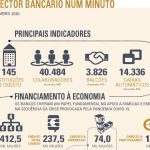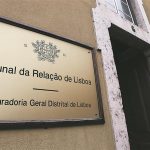A Nightmare on Property Investment Street! Portugal spooks investors over scrapping Non-Habitual Residents regime
After axing Portugal’s most successful and competitive Golden Visa regime, which has attracted €7Bn of investment to the country since 2012, its government now seems hell bent on applying the Freddy Krueger treatment to slash the hugely successful Non-Habitual Residents scheme.
Introduced in 2009, and modified in 2012, the NHR has attracted 80,000 people to Portugal, many of who have invested in property, the economy, VAT revenues, job creation, and brought talent and skills to the country.
The regime offers tax benefits for a period of 10 years for those thinking of spending up to 180 days in Portugal. Some foreign income is exempt from Portuguese tax; there are foreign pension income benefits from a special fixed low tax rate, and local ‘high value’ employment is also taxed at a lower rate than usual according to tax and pension advisers Blevins Franks.
And if this sound like sensational and biased tabloid journalism, it is because it is, and is meant to be since the policy, if it goes ahead, is complete suicidal madness, and sends out alarm bells to small and big investors alike that at best Portugal doesn’t know what visas it wants and for whom and for what ends.
At worst, it sends out a message that Portugal is no longer open to investors at precisely the time when the country is attracting entrepreneurs, start-up founders, creative talent, wealthy Americans and retired and semi-retired Europeans, Irish and English to live and spend money in the economy for a substantial part of the year.
António Costa announced on television yesterday that the NHR will be scrapped in 2024. His reasons? It is fuelling Portugal’s lack of affordable property crisis.
In an interview with TVI and CNN Portugal, António Costa argued that the Government has decided not to prolong “a measure of fiscal injustice, which is no longer justified and which is a biased way of inflating the housing market, which has reached unsustainable prices”.
“In 2024, special taxation for non-habitual residents will end. Whoever has it will keep it”, he said regarding overseas nationals living in Portugal who already have the NHR.
António Costa added that the “measure for habitual residents has already fulfilled its function and, therefore, it makes no sense to maintain a tax for non-habitual residents”.
The Prime Minster continued by saying that the NHR did make sense in the past (when Portugal’s property market was at a standstill) and when 59% of people who had benefitted remained in the country.
The Prime Minister said the regime is simply inflating the housing market, and if in the early phases helped to attract investment, now “no longer makes sense”.
Pedro Fontainhas (pictured), Managing Director of the Portuguese Association of Resorts (APR) reacted to the policy move by saying that the termination of the NHR was yet another decision with profound consequences for Portugal
“Prime Minister António Costa’s recent announcement to terminate the Non-Habitual Residents Regime (NHR) in 2024 raises significant concerns. Like previous decisions, this move appears to be a hasty political manoeuvre that lacks the foundation of factual analysis and disregards the well-being of the Portuguese people and the nation’s economy”, he said.
And added: “The NHR, established over a decade ago, has been instrumental in attracting foreign investment, retirees, and talented individuals, including the Portuguese diaspora, who sought to return to their homeland. This program has significantly contributed to Portugal’s economic growth and helped compensate for a qualified youth exodus trend. By discontinuing the NHR, the government risks undoing years of progress and alienating potential investors, returning members of the diaspora, and the nation’s educated workforce, who are essential for the country’s long-term development”.
“The government’s failure to consider the consequences of this decision is deeply concerning. The termination of the NHR could lead to a decrease in tax revenue, job losses, and adverse effects on local businesses that have flourished due to the presence of non-habitual residents, foreigners, and nationals alike”, he continued.
And lamented: “Terminating the NHR without proper examination and planning is a decision that places short-term political gains ahead of the nation’s long-term well-being. Portugal depends on every euro of foreign investment it can attract. The Socialist Party has rightly turned down several attempts to scrap this tool until even a fortnight ago. So, this decision is incomprehensible, and the government must reconsider, conduct an in-depth analysis of its consequences, and adopt a more thoughtful and informed approach”.
Later the Portuguese Association of Real Estate Developers and Investors (APPII) waded into the discussion with its reaction to the news.
It demanded “clarification” on the end of the tax regime for non-habitual residents announced by the Prime Minister and warned that it could lead to the “cancellation of investments” in Portugal.
In a statement, the APPII asked for “explanations” from the government. “The APPII believes that this is yet another one-off measure by the government, devoid of any logic, which will drive even more talent and highly qualified professionals out of the country.”
“The association wants explanations from the government as a matter of urgency on what changes it intends to make to this regime, when they will be implemented and, above all, what real impact this will have on our country’s economy.”
The association adds: “This announcement creates uncertainty” and “could lead to the cancellation of investments in our country and prevent the return of highly qualified Portuguese who are abroad in the diaspora, who were counting on this regime to return and work in Portugal”.
The APPII stressed that the “NHR created wealth, companies and jobs” and that “measures like this reduce the attractiveness of our country, damaging economic development”.
“We are talking about a basic measure for the country’s economy, which greatly contributed to attracting not only investment, but also human capital in the post-financial crisis period. We believe it is important to carry out an assessment of this measure, specifically to gauge its real impact on the country and the consequences of its end,” said Hugo Santos Ferreira, president of APPII.
The APPII also expressed the view that the “executive can re-evaluate its position and begin a process of consultation with the main players in this market, in order to conclude, based on real data, which is the right step to take”.
In the same interview, which took place in the run-up to the State Budget 2024 that will be handed to parliament on October 10, António Costa also discussed the new Lisbon airport.
“My commitment is that the political decision will be taken immediately after a technical recommendation”, he said.
“The problem is that the (opposition party) PSD has threatened to tear up this agreement. If they do, it wouldn’t be the first time that the PSD has surprised me. They’ve said everything and gone back on everything. One thing is certain: whatever the choice of site, 80% will be against it”.










